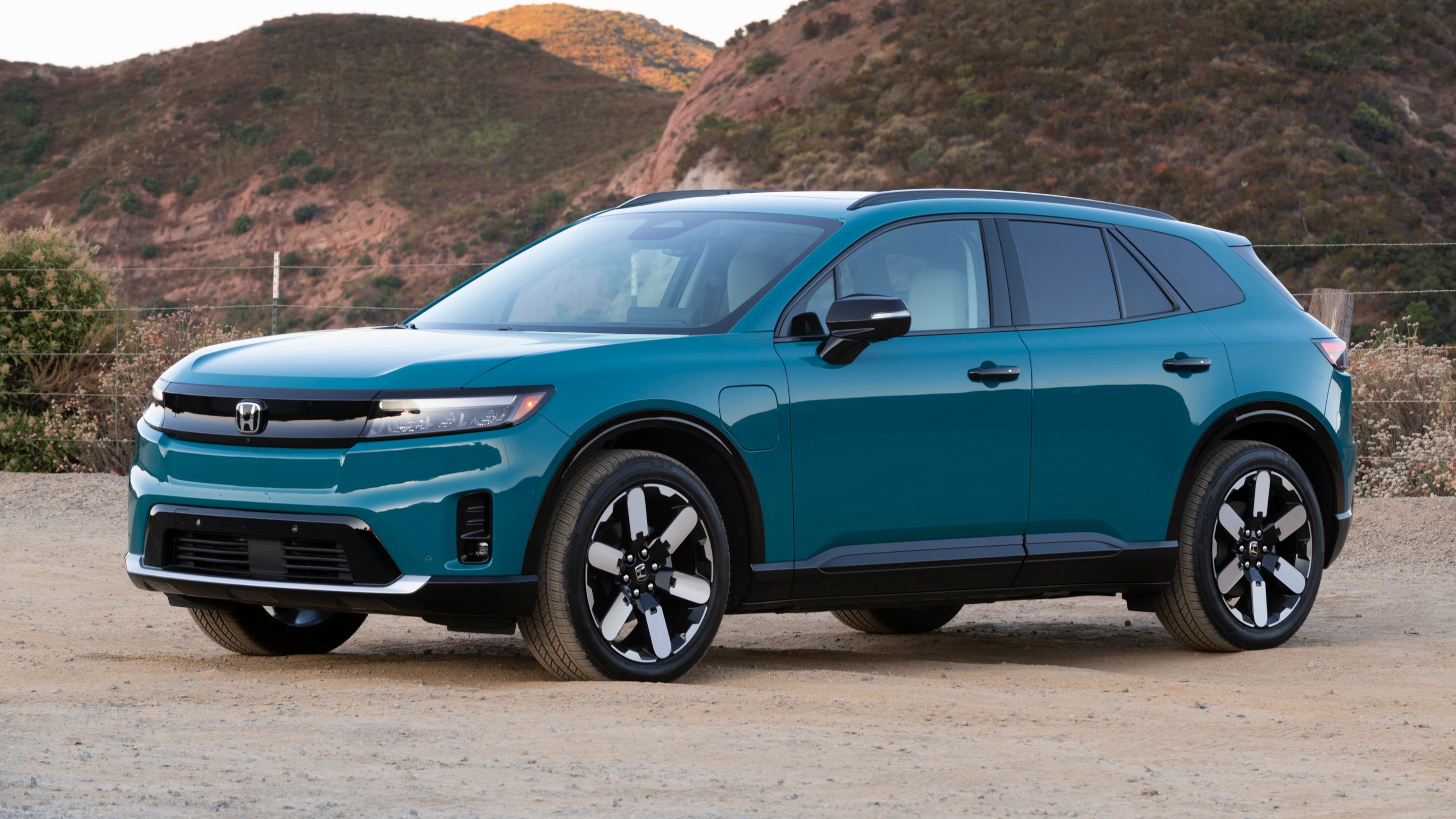Opinion: Why leasing an electric car makes more sense than buying right now

The “one big, beautiful bill” President Donald Trump signed into law on July 4 cut the $7,500 tax credit for buyers of qualifying electric vehicles.
For some shoppers, buying an EV may no longer make sense. Leasing, however, may still be a viable option.
EV adoption blossomed in recent years. You can credit fluctuating gas prices, concerning environmental issues and the 2022 Inflation Reduction Act’s enticing federal tax credits and other incentives, like discounts on home installation of EV chargers.
When tax credits end on Sept. 30, it will impact the affordability of the electric vehicles that qualify for them.
This dramatic about-face of the Inflation Reduction Act’s EV tax credit and other incentives means shoppers could do better by leasing. Even consumer finance expert Jean Chatzky extolled the benefits of car leasing in a recent podcast episode from Everyday Wealth.
For starters, lessees would avoid the ever-widening depreciation gap. EVs typically experience faster depreciation than gas-powered or hybrid vehicles. Electric technology quickly improves, including faster-charging and longer-range batteries like the soon-to-arrive solid-state version, meaning the EV you buy today is on the road to being out of date before long.
Though leasing has disadvantages, it remains a flexible, low-risk way to drive an EV, and it brings financial advantages for some. However, leasing an EV raises other considerations.
More EV models to choose from
In 2020, consumers were limited to 17 electric car models in the marketplace. Today, shoppers can choose from 75 EVs, including popular models like the Tesla Model Y, Kia EV9, Hyundai Ioniq 5 and Honda Prologue.
Adoption shows steady growth. According to Cox Automotive data, EVs made up 7.5% of the new cars Americans bought in the first quarter of 2025. The growth comes as some manufacturers like Ford and GM pull back on EV production goals for the next several years.
With more EV models available, consumers could see better leasing deals.
These deals could come quickly as 2026 models begin pouring into dealership showrooms later this year. At last check, some manufacturers are still trying to unload their 2024 EV models, pushing them as leasing opportunities.
For example, a shopper in July can find a Volkswagen ID.4 for $2,499 down and $129/month for 24 months on the rear-wheel drive (RWD) Pro trim. This deal is valid through the end of the month.

Also, leasing is a way to get into a vehicle with fewer obligations to the future, including amid a hazy future of inflated new car loan interest rates.
Leasing deals help with affordability
In its most recent leasing report, credit bureau TransUnion shows almost half of all electric cars are leased. With the increased availability of new electric vehicles and the competition, there’s a potential oversupply of EVs, leading to better lease deals. The tax credits expire at the end of September.
Until then, many leasing companies are passing along the $7,500 lease tax credit to those who lease. The leasing company, which receives the credit, often passes the savings on to the lessee. Before you lease, ask for a breakdown of charges and inquire about the tax credit before it expires.
In addition to lower monthly payments, leases usually require smaller down payments than purchases, meaning the shopper pays less out of pocket than they would to buy the car outright.
Leasing avoids the depreciation gap
Leasing an electric vehicle helps with the depreciation gap by shifting the risk to the leasing entity. Here’s how:
- Lessees only pay for depreciation during the lease term, not beyond. EV depreciation is dramatically greater than that of gas-powered cars and hybrids.
- Residual value, or the estimate of what the car is worth at the end of the lease term, is set at the start of the lease. At the end of the lease, you can buy the car for the residual value. You’ll get a bargain if the car has a market value greater than the established residual value. You might even be able to resell the vehicle for a profit.
- If you maintain your vehicle during the lease term, the manufacturer’s warranty will cover major issues, including those with the EV battery and electronics.
The pros and cons of leasing
When leasing an electric vehicle, consider the following pros and cons:
Pros
- Lower down payment and monthly payment. As mentioned, the up-front costs are lower on leases than when you purchase a vehicle. Using today’s tax credit is also possible, potentially lowering lease costs.
- No obligation beyond the lease terms. With typical lease terms, you can walk away from the vehicle when your lease is up.
- Access to a new vehicle and technology. Because lease terms average three years, you can regularly renew your experience with the latest technology.
- Avoid the hefty depreciation of an EV. All cars experience substantial depreciation in the first several years of ownership. When you lease an EV, this depreciation shifts mainly to the leasing entity.
Cons
- No equity or ownership. In most cases, you’re not required to buy the car at the end of the lease. Therefore, while free and clear, you’re stuck starting over with another vehicle to get around. That can be a financial burden for some.
- Mileage limitations. Many leases set limits, forcing you to estimate how many miles you travel in your car each year. If you exceed your mileage estimate, fees could be over 50 cents per mile.
- End-of-lease fees. You are responsible for mileage overages and any damage to the EV beyond typical wear and tear. If you end your EV lease early, there’s also a penalty.
- Vehicle modification is strictly prohibited. If you lease an electric truck, like the Ford Lightning, forget about adding a truck bed cover or permanent bed liner. If you modify your EV, the dealership could hold you responsible for restoration costs.
Before you decide between buying and leasing an EV, consider your overall budget and how much car you can afford. Make a wise choice that works for you and your finances.
Renee DeGross Valdes is a veteran reporter and editor who writes about car advice for Kelley Blue Book and Autotrader. She previously worked for CNN and The Atlanta Journal-Constitution.
The Steering Column is a weekly consumer auto column from Cox Automotive. Cox Automotive and The Atlanta Journal-Constitution are owned by parent company, Atlanta-based Cox Enterprises.


